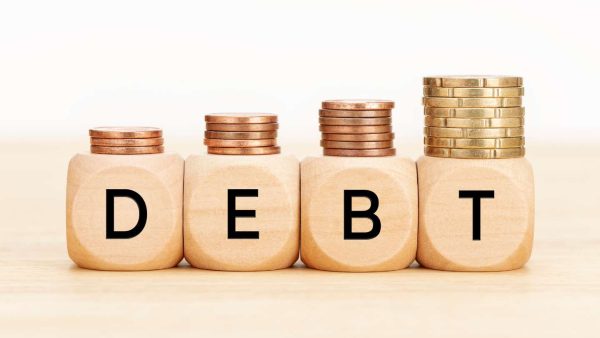Debt as Marital Property
During divorce proceedings, debt incurred during the marriage is often classified as marital property and may be divided between both spouses.
When couples think of divorce, they often picture dividing assets like homes, cars, or savings accounts. But along with property comes another, less glamorous side of marital life: debt. Credit card balances, mortgages, and other liabilities can be just as significant as assets—and sometimes even more complicated to split. So, how is debt treated as marital property, and who is responsible after divorce?
What Is Marital Debt?
Just as marital property refers to assets acquired during the marriage, marital debt refers to financial obligations incurred while the couple was married. These can include:
- Credit card debt
- Mortgages
- Car loans
- Personal loans
- Student loans (sometimes)
The key question in divorce is whether these debts are marital (shared) or separate (belonging to one spouse).
Credit Card Debt in Divorce
Credit card debt can be tricky because it’s often a mix of household expenses, personal purchases, and sometimes even hidden spending. Courts usually look at:
- When the debt was incurred – Debt acquired before marriage is typically separate.
- How the debt was used – If it covered household necessities (groceries, utilities), it may be marital. If it was used for personal luxury items, it may be assigned to the spouse who benefited.
- Whose name is on the card – Even if the debt is assigned to one spouse in divorce, the credit card company can still hold both spouses responsible if both are listed on the account.
👉 Tip: Closing joint credit card accounts during divorce proceedings helps prevent future financial entanglements.
Mortgage Debt in Divorce
Mortgages are often the largest shared debt in a marriage. When couples divorce, three common scenarios arise:
- Sell the home and split the proceeds (or losses, if the house is underwater).
- One spouse keeps the home and refinances the mortgage in their name alone.
- Both spouses continue owning the home jointly for a period (for example, until children finish school).
Courts usually consider fairness, financial capacity, and whether one spouse wants to remain in the home.
Community Property vs. Equitable Distribution States
The way debt is divided depends largely on where you live:
- Community property states (e.g., California, Texas, Arizona): Most debts incurred during marriage are split equally, regardless of whose name is on the account.
- Equitable distribution states: Debts are divided fairly, but not always equally. Courts consider factors such as who incurred the debt, who benefited, and each spouse’s financial circumstances.
Protecting Yourself from Debt Liability
- Check credit reports: Know what debts exist under both names.
- Close joint accounts: Prevent your ex-spouse from racking up charges after separation.
- Refinance loans: Ensure the spouse keeping the home or car takes full financial responsibility.
- Use written agreements: Divorce decrees should clearly state who pays what, though creditors may still pursue either spouse if both are on the loan.
Debt division is one of the most stressful aspects of divorce. Unlike assets, which can often be divided, debt can create ongoing financial ties between ex-spouses. Understanding how credit card balances and mortgages are treated as marital property helps couples prepare for fair negotiations and avoid future surprises. Legal and financial advice is essential to protect your credit and secure a clean financial break.
Frequently Asked Questions on Debt as Marital Property
1. Who pays the credit card debt after divorce?
If the debt was incurred during the marriage for household expenses, both spouses may be responsible. However, if the card was used for personal purchases, the spouse who benefited may be assigned the debt.
2. What if only one spouse’s name is on the credit card?
Courts may still treat it as marital debt if it benefited the household. However, the lender can only pursue the person whose name is on the account.
3. Can a divorce decree remove my name from a joint credit card or mortgage?
No. A divorce decree allocates responsibility between spouses, but lenders are not bound by it. You remain liable unless the debt is refinanced or paid off.
4. What happens to the mortgage if neither spouse can afford it?
The most common solution is to sell the home and split the proceeds (or debt, if the home’s value is less than the mortgage).
5. Can I be forced to pay my ex-spouse’s personal debt?
Generally, no. Personal debt incurred before marriage or for individual use typically remains separate, unless you co-signed or the debt benefited the marriage.
6. How do courts decide what’s fair in equitable distribution states?
They consider factors like each spouse’s income, financial stability, and who benefited from the debt. “Fair” doesn’t always mean “equal.”


Leave a Reply